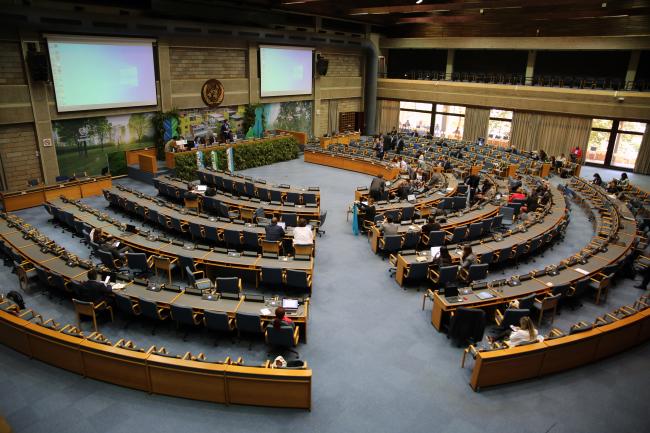At the resumed second session of the UN-Habitat Assembly in Nairobi, Nigeria’s Minister of Housing and Urban Development, Arc. Ahmed Musa Dangiwa, urged global leaders to view housing not merely as shelter, but as a strategic instrument for economic growth, poverty reduction, and climate action. Addressing a High-Level Ministerial Dialogue on Adequate Housing for All, Dangiwa emphasized that inclusive housing policies have the potential to transform lives, rebuild economies, and deliver long-term resilience.
Dangiwa outlined Nigeria’s commitment to the UN-Habitat 2026–2029 Strategic Plan, praising Executive Director Ms. Anaclaudia Rossbach for prioritizing the transformation of informal settlements, access to essential services, and equitable housing. He presented Nigeria’s ongoing housing reforms as a replicable model for sustainable urban development that centers people, climate, and equity.
The Minister highlighted the achievements of the Renewed Hope Housing Programme, an ambitious initiative under President Bola Ahmed Tinubu. With over 10,000 housing units currently under construction across 14 states and the FCT, the first phase targets 50,000 new homes. Already, the programme has created more than 250,000 direct and indirect jobs an early indication of its economic multiplier effect.

Looking ahead, Dangiwa noted that Nigeria needs to build at least 550,000 homes annually to meet its population demands. If executed with sustainability in mind, such efforts could generate up to 13.7 million jobs each year. He also detailed the Renewed Hope Social Housing Estates initiative, which aims to deliver 100 affordable homes in each of the country’s 774 local government areas creating nearly 2 million jobs and stimulating growth in underserved regions.
To ensure affordability, Dangiwa stated that low-income households would contribute no more than one-third of their income toward housing costs, with the government bridging the gap through subsidies, tax incentives, and bulk procurement. Thirty percent of these homes will be provided free to the most vulnerable Nigerians underscoring a commitment to equity and inclusion.
Rounding off his address, the Minister spotlighted the National Urban Renewal and Slum Upgrade Programme, which has delivered over 150 infrastructure projects, with 100 more ongoing. These interventions ranging from clean water and sanitation to solar lighting and road access are designed to uplift communities and enhance quality of life. “Housing,” Dangiwa said, “when aligned with social and climate goals, becomes a platform for dignity, recovery, and development.” He reaffirmed Nigeria’s commitment to working with global partners to scale these solutions across borders.



